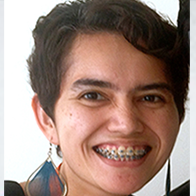As a student of medical sciences, I am always reminded to read and critically challenge any new finding in science by doing more research. People like me conduct experiments, challenge ideas and dogma, and present our work to be peer-reviewed either by attending conferences or publishing articles in academic journals. Being in science is a lifelong commitment to learning and discourse. Especially in medical science, where any new finding can possibly change or save a person's life, or more.
Yet even scientists, sometimes, have to do away with our ego and let science speak for itself. After all we scientists are human and mere observers to the complex and beautiful intricacy of nature.
I have to admit that because we scientists are also human, discourse can get heated. Emotions will be hurt, and tempers run high. Reading through autobiographies by Nobel laureates provide a glimpse of this. An example would be the story behind the race to solving the structure of the DNA. The drama can give any Spielberg movie a run for its money – with gender discrimination towards the woman who did all the X-ray crystallography work, Rosalind Franklin to a debate between English physicist Francis Crick and American biologists James Watson and Linus Pauling. But the humanity behind the story saw Franklin working for Watson in the last years of her life, before she succumbed to cancer and missed out on the Nobel Prize and having her name in history as one of the persons who solved the structure that is the basis of life itself.
Human dreams, struggle, determination, and achievement. All that is missing is a tragic love story.
I digress. In science, we do get emotional too, especially so when policymakers do not want to listen to science or evidence-based data. We get emotional when there are people campaigning against vaccination. We get emotional when our years of hard work were scooped by another group of researchers. In science it is about novelty and, sometimes, who can "shout" the loudest through being a prominent name in the field. But we also remain humble to science, because evidently, it will speak for itself.
I wonder if we can maintain the same rationality when discussing social issues such as race, culture and religion.
I consider myself lucky to be living in the Klang Valley, where there are many public lectures and forums held nearly every week. In the last few months alone, I managed to attend a forum moderated by The Malaysian Insider's own Jahabar Sadiq with fellow columnist and Public Accounts Committee (PAC) chairman Datuk Nur Jazlan Mohamed on the panel on the freedom of expression, a lecture followed by a panel discussion on the civil society movement in Malaysia by Professor Meredith L. Weiss of Albany University in New York and more recently a lecture by Professor Shad Saleem Faruqi from UiTM on human rights.
In all these forums, I see Malaysians being able to hold discussions without resorting to shouting matches. There might be raised voices to prove a point, but almost always, the moderators would step in and bring the discussion back to the topic at hand. In many of such gatherings, I have always been sceptical about such events preaching to the already converted. I can't help but feel that some of us, ordinary Malaysians, are too polarised in what we believe in, that we choose to go to such forums only when we know that the speakers will say what we want to hear.
I admit to choosing to make the time for such forums on similar basis. But, I also admit that I cannot escape news highlighting hatred and bigotry. And, as I care about my own sanity, I choose to not be too affected by the latter. This choice made me flawed. And I admit this is my weakness. Also, as a scientist, I struggle to understand ideology and sociology without the hard facts and experiments which we scientists believe in. I strive to read more instead on such topics and keep learning.
Do I believe that we, the civil society, can have a rational discourse? The short answer is yes. But we must remember to be civil, and we must have a moderator that can lead and control the discourse from becoming only an emotion-filled shouting match. We must try to leave our prejudices and ego behind, and have a clear understanding of the outcome we want from such discourse. It can be our tiny effort to solve a particular problem within the community, or to resolve the inconsistencies of our shariah law and our own understanding of the Federal Constitution , or reflecting on problems involving our country's economy.
I still have hope in our policymakers. But since our members of parliament are made of politicians who represents us, the people, we ourselves must take responsibility to voice out in a civil manner what do we Malaysians want.
We are all scientists, it seems, experimenting with our opinions and ideologies. I believe that just like science, humanity will at the end of the day speak for itself. – February 4, 2015.
* This is the personal opinion of the writer or publication and does not necessarily represent the views of The Malaysian Insider.


Comments
Please refrain from nicknames or comments of a racist, sexist, personal, vulgar or derogatory nature, or you may risk being blocked from commenting in our website. We encourage commenters to use their real names as their username. As comments are moderated, they may not appear immediately or even on the same day you posted them. We also reserve the right to delete off-topic comments